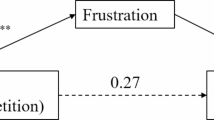Abstract
Scent has been well documented as having significant effects on emotion (Alaoui-Ismaili in Physiol Behav 62(4):713–720, 1997; Herz et al. in Motiv Emot 28(4):363–383, 2004), learning (Smith et al. in Percept Mot Skills 74(2):339–343, 1992; Morgan in Percept Mot Skills 83(3)(2):1227–1234, 1996), memory (Herz in Am J Psychol 110(4):489–505, 1997) and task performance (Barker et al. in Percept Mot Skills 97(3)(1):1007–1010, 2003). This paper describes an experiment in which environmentally appropriate scent was presented as an additional sensory modality consistent with other aspects of a virtual environment called DarkCon. Subjects’ game play habits were recorded as an additional factor for analysis. Subjects were randomly assigned to receive scent during the VE, and/or afterward during a task of recall of the environment. It was hypothesized that scent presentation during the VE would significantly improve recall, and that subjects who were presented with scent during the recall task, in addition to experiencing the scented VE, would perform the best on the recall task. Skin-conductance was a significant predictor of recall, over and above experimental groups. Finally, it was hypothesized that subjects’ game play habits would affect both their behavior in and recall of the environment. Results are encouraging to the use of scent in virtual environments, and directions for future research are discussed.




Similar content being viewed by others
References
Alaoui-Ismaili O, Robin O, Rada H, Dittmar A, Vernet-Maury E (1997) Basic emotions evoked by odorants: comparison between autonomic responses and self-evaluation. Physiol Behav 62(4):713–720
Anderson CA (2004) An update on the effects of playing violent video games. J Adolesc 27(1):113–122
Barker S, Grayhem P, Koon J, Perkins J, Whalen A, Raudenbush B (2003) Improved performance on clerical tasks associated with administration of peppermint odor. Percept Mot Skills 97(3)(1):1007–1010
Christakis DA, Ebel BE, Rivara FP, Zimmerman FJ (2004) Television, video, and computer game usage in children under 11 years of age. J Pediatr 145(5):652–656
Dinh HQ, Walker N, Song C, Kobayashi A, Hodges LF (1999) Evaluating the importance of multi-sensory input on memory and the sense of presence in virtual environments. In: Proceedings of the IEEE virtual reality conference, Houston, March 1999, pp 222–228
Herz RS (1997) Emotion experienced during encoding enhances odor retrieval cue effectiveness. Am J Psychol 110(4):489–505
Herz RS, Schankler C, Beland S (2004) Olfaction, emotion, and associative learning: effects on motivated behavior. Motiv Emot 28(4):363–383
Judd CM, McClelland GH (1989) Data analysis: a model-comparison approach, 1st edn. Harcourt Brace Jovanovich, New York
Morgan CL (1996) Odors as cues for the recall of words unrelated to odor. Percept Mot Skills 83(3)(2):1227–1234
Pauli P, Bourne LE Jr, Diekmann H, Birbaumer N (1999) Cross-modality priming between odors and odor-congruent words. Am J Psychol 112(2):175–186
Schifferstein HNJ, Michaut AMK (2002) Effects of appropriate and inappropriate odors on product evaluations. Percept Mot Skills 95:1199–1214
Smith DG, Standing L, de Man A (1992) Verbal memory elicited by ambient odor. Percept Mot Skills 74(2):339–343
Usoh M, Arthur K, Whitton M, Bastos R, Steed A, Slater M, Brooks F (1999) Walking > walking-in-places > flying in virtual environments. In: Proceedings of ACM SIGGRAPH, 1999
Witmer BG, Singer MJ (1998) Measuring presence in virtual environments: a presence questionnaire. Presence: Teleoperators Virtual Environ 7(3):225–240
Author information
Authors and Affiliations
Corresponding author
Additional information
The project described herein has been sponsored by the US Army Research, Development, and Engineering Command (RDECOM). Statements and opinions expressed do not necessarily reflect the position or the policy of the US Government; no official endorsement should be inferred.
Rights and permissions
About this article
Cite this article
Tortell, R., Luigi, D.P., Dozois, A. et al. The effects of scent and game play experience on memory of a virtual environment. Virtual Reality 11, 61–68 (2007). https://doi.org/10.1007/s10055-006-0056-0
Received:
Accepted:
Published:
Issue Date:
DOI: https://doi.org/10.1007/s10055-006-0056-0




